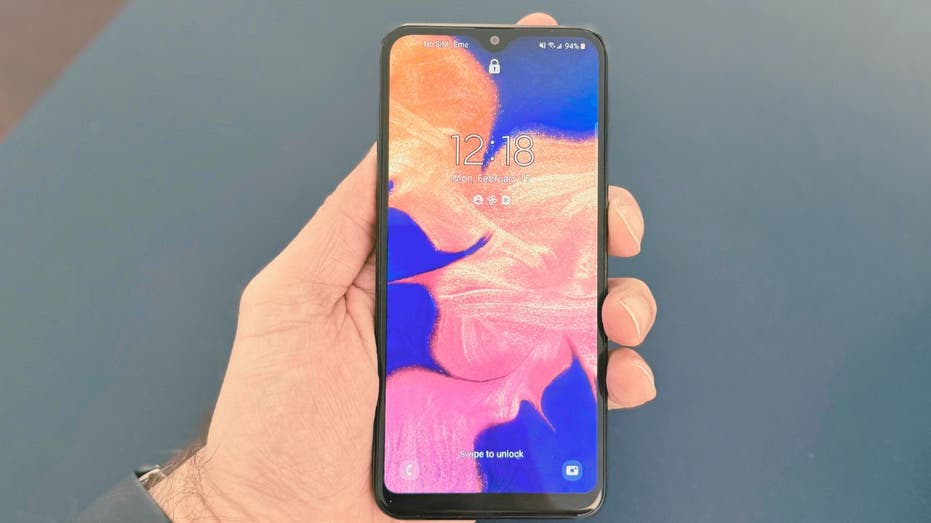- by foxnews
- 06 Apr 2025
9 ways scammers can use your phone number to try to trick you
Scammers can wreak havoc on your life just by having your phone number. Kurt "CyberGuy" Knutsson addresses how to avoid becoming a victim.
- by foxnews
- 02 Dec 2024
- in technology

The problem is that scammers with the right knowledge and the wrong intentions can wreak havoc just by having your phone number in their possession.
Once they do, they can use it to trick you in all sorts of ways.
In some cases, scammers use your phone number for extortion or blackmail. They may claim to have compromising information about you and demand payment to keep it private. By contacting you directly, they can apply continuous pressure, making their threats seem more real and immediate.
This makes it more likely that you'll answer the call, giving them the opportunity to deceive you into revealing personal information or transferring money. This is, of course, the case when phone spoofing is used against you. But in situations where they use YOUR phone number, they can be scamming those close to you without you even knowing!
Instead of pretending to be from a government agency, another trick is for scammers to try their luck by posing as a representative from a utility company, like an electric or water company. Scammers will claim that you have an overdue invoice and threaten to cut off your service unless you pay immediately. Using your phone number, they can contact you repeatedly, making the scam seem more legitimate (and pressing).
With SIM swapping techniques/port-out, scammers can also use your phone number as a key to access sensitive data stored in your online accounts. By initiating password resets and intercepting verification codes sent via SMS, they can gain unauthorized access to your email, social media and banking accounts, leading to significant personal and financial damage.
To protect your phone number from falling into the hands of scammers, here's what you can do:
1. Be cautious about sharing your phone number publicly: Avoid posting your phone number on public forums, websites or social media platforms where it can be easily accessed by scammers.
3. Consider using a secondary number for online registrations and transactions: Services like Google Voice can provide you with a secondary number that you can use for online activities, keeping your primary number private.
4. Monitor your accounts regularly for unusual activity: Check your bank accounts, email and other online accounts for any signs of unauthorized access or suspicious activity.
7. Use an identity theft protection service: Identity theft companies can monitor personal information like your Social Security number, phone number and email address and alert you if it is being sold on the dark web or being used to open an account. They can also assist you in freezing your bank and credit card accounts to prevent further unauthorized use by criminals.
If you suspect that scammers already have your phone number, take the following steps:
Contact your mobile carrier to alert them of the scam calls, especially if they come from the same number. Your carrier may be able to block the number or provide additional security measures.
Consider changing your phone number if the issue persists: If scam calls continue despite your efforts, changing your phone number may be the best solution.
Report any suspicious activity to the appropriate authorities: Contact your local law enforcement or consumer protection agency to report scams and seek advice on further actions.
Consider placing fraud alerts on your accounts: Fraud alerts can help protect your credit and financial accounts from unauthorized access.
Monitor your phone for unusual calls or messages: Keep an eye out for any unexpected calls or messages, and do not respond to them.
Check your phone bill for unauthorized charges: Regularly review your phone bill to ensure there are no unexpected charges, which could indicate that your number has been used fraudulently.
By following these steps, you can significantly reduce the risk of falling victim to phone number scams and protect your personal information.
Scams have become much more sophisticated these days, especially with artificial intelligence, making it easier for scammers to target more people and get away with it. Always be wary of a scam. If you think something seems strange, it's probably best to go with your gut.
Follow Kurt on his social channels
Answers to the most asked CyberGuy questions:
New from Kurt:
Copyright 2024 CyberGuy.com. All rights reserved.
- by foxnews
- descember 09, 2016
Viral photo of McDonald's PlayPlace prompts superfan to reveal fast-food chain's stray from nostalgia
McDonald's superfan shares the standout PlayPlaces he has seen after a viral photo showed a "heartbreaking" McDonald's PlayPlace in Franklin, Tennessee.
read more





